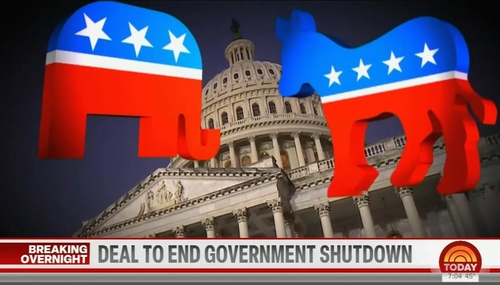 The man who served as an Obama administration Regulation Czar, Cass Sunstein, is giving more evidence that the left is moving to regulate social media.
The man who served as an Obama administration Regulation Czar, Cass Sunstein, is giving more evidence that the left is moving to regulate social media.
Sunstein, who has worked as a Facebook consultant, suggested that Facebook and Twitter should be regulated. He proposed this solution to stop “Russian” interference, to protect privacy, and to prevent a monopoly. He then raised the point that, “social media platforms can jeopardize both democratic and economic goals.”
In the Feb. 14 Bloomberg op-ed “Regulate Facebook and Twitter? The Case Is Getting Stronger,” he rejected his previous views about regulation. “[Violating] the First Amendment” and “[squelching] creativity and innovation in the very places where they are most needed” are no longer his primary concerns. He quoted the late English Judge Baron Bramwell to summarize this change of priorities, “The matter does not appear to me now as it appears to have appeared to me then.”
Grassroots conservatives rely on social media to combat liberal media bias and liberal indoctrination in schools. Sunstein has written a previous op-ed praising Chinese school indoctrination and has been dubbed by The Blaze’s Glenn Beck as “the most dangerous man in America.”
The first major reason he cited for his new position is that regulating social media is a matter of protecting “democracy itself,” scapegoating Russia’s tendency to “promote their interests” as if that were the major reason Democrats lost the 2016 election.
The second reason was the cause of consumer protection, and the third was suggesting that big tech companies can be “a kind of monopoly.”
His concerns about foreign interference are ironic. Sunstein has said America should learn from the education reforms used in communist China.
In his op-ed titled “Open Brain, Insert ideology” Sunstein praised China’s educational reforms designed to "transform students’ political views” and wondered whether such programs would also be effective in the United States.
He suggested readers envision a scenario where “an authoritarian government decides to embark on a program of curricular reform, with the explicit goal of indoctrinating the nation’s high school students.” He continued by wondering if such a government could teach “that their government is good and trustworthy, that their system is democratic and committed to the rule of law, and that free markets are a big problem.”
He then mused if that system of indoctrination could work in the United States. He noted that high schools in particular have the power to nudge students toward what they consider “a correct worldview, a correct view on life, and a correct value system.”
Beck's website also notes that Sunstein himself wrote a controversial paper advocating the use of agents to infiltrate and subvert online groups and disseminate false information. Glenn commented that the goal of Sunstein's tactic was to “pose, infiltrate, and discredit."





